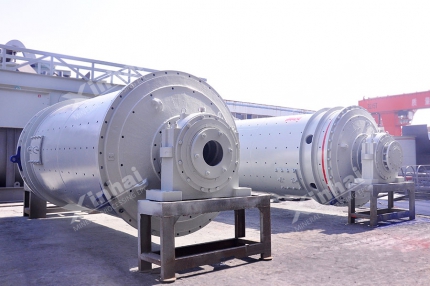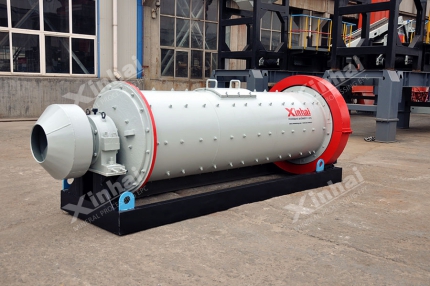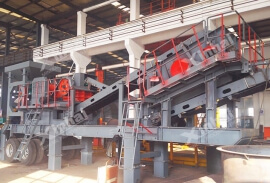Iron ore concentrator design is a complex and important project that requires consideration of many factors, such as the nature of raw ore, beneficiation technology, equipment, process flow, product quality, environmental protection, etc. In this article, we will introduce to you the issues that need to be paid attention to in the design of iron ore concentrator from three aspects.
Use the table of contents below to navigate through the guide:
01Iron ore concentrator process flow and index formulation
Before designing an iron ore dressing plant, we must conduct detailed beneficiation tests based on the physical properties, chemical properties and mineral composition of the raw iron ore to determine reasonable beneficiation processes and indicators, such as crushing, grinding, gravity separation, magnetic separation, flotation, dehydration, etc. This stage is the basis of design, and it is necessary to select a technical solution suitable for the characteristics of iron ore raw materials and product requirements.

01 Ore analysis and testing
This is the basis for formulating the process flow. It requires detailed chemical analysis, physical testing, mineral processing tests, etc. on the raw ore to understand the grade, composition, density, hardness, magnetism, flotation and other properties of the ore, as well as the type and content of the mineral. , embedded state, particle size distribution and other characteristics to determine the optionality and difficulty of iron ore, providing a basis for selecting appropriate mineral processing methods and process parameters.
02 Selection of mineral processing methods and equipment
This is the core of formulating the process flow. It is necessary to select mineral processing methods and equipment suitable for the characteristics of raw ore and product requirements based on the results of ore analysis and testing and comprehensive consideration of factors such as technical feasibility, economic rationality, and environmental friendliness.
03 Design and optimization of process flow
At this stage, it is necessary to design a reasonable process flow chart based on the selected mineral processing method and equipment, determine the number, sequence and connection method of each operation section, as well as the specifications, quantity and layout location of each equipment, and conduct technical and economic analysis and optimize calculations, evaluate the effects and benefits of the process, and select appropriate solutions. Commonly used technological processes include one or more open-circuit or closed-circuit crushing and screening processes, one or more open-circuit or closed-circuit stages or continuous grinding and flotation processes, one or more open-circuit or closed-circuit stages or continuous gravity separation or heavy media separation processes. One or more open-circuit or closed-circuit stages or continuous wet or dry weak magnetic or strong magnetic separation processes, etc.

04 Verification and adjustment of process flow
This is the guarantee for formulating the process flow. It is necessary to verify and inspect the designed process flow in actual production, observe the operation conditions and index changes of each operation section and equipment, and collect samples of each product and intermediate materials for analysis and testing. Evaluate the actual effects and benefits of the process, and make necessary adjustments and improvements based on the actual production situation and market demand to make the process reach the ideal state.
02Selection of mineral processing and auxiliary equipment for iron ore concentrator
According to the iron ore beneficiation process and indicators, select appropriate beneficiation equipment and auxiliary equipment, and carry out reasonable configuration and layout. Mineral processing equipment is the core of the design. Factors such as equipment performance, specifications, quantity, price, etc. must be considered to select advanced, reliable, energy-saving, and environmentally friendly equipment, and ensure coordination and matching between equipment. Its main steps include three aspects:

01Select main mineral processing equipment
According to the beneficiation method and process parameters of the selected iron ore, select the main beneficiation equipment with excellent performance, suitable specifications and moderate price, such as jaw crusher, cone crusher, ball mill, autogenous grinding machine, spiral classifier, vibrating screen, heavy media cyclone, wet strong magnetic separator, dry weak magnetic separator, flotation machine, filter, etc. The main mineral processing equipment is a key factor affecting the mineral processing effects and benefits. It is necessary to select advanced, reliable, energy-saving and environmentally friendly equipment, and ensure coordination and matching between the equipment.
02Select auxiliary equipment
According to the requirements and working conditions of the main mineral processing equipment, select necessary auxiliary equipment, such as conveyor belts, bucket elevators, feeders, discharge machines, electrical control cabinets, instrumentation, etc. Auxiliary equipment is an important condition to ensure the normal operation and efficient utilization of the main mineral processing equipment. It is necessary to select equipment with stable performance, reliable quality and easy operation, and ensure connection and coordination with the main mineral processing equipment.
03Verify and adjust device configuration
This is the guarantee for selecting mineral processing equipment and auxiliary equipment. It is necessary to verify and inspect the selected equipment in actual production, observe the operation of the equipment and changes in indicators, evaluate the actual effects and benefits of the equipment, and base on the actual production situation and market demand Make necessary adjustments and improvements to bring the equipment to ideal condition.
03Iron ore concentrator structure and layout design
According to the mineral processing equipment and process flow, a reasonable factory structure and layout are designed to ensure the smooth progress and safety of production. The structure and layout of the factory building are the external manifestations of the design. Factors such as the function, form, scale, and location of the factory building must be considered to coordinate the factory building with equipment, pipelines, electrical, etc., and comply with building regulations and aesthetic requirements.
.jpg)
01 Choose the appropriate factory structure and form
According to the selected equipment and process flow, select the appropriate factory structure and form, such as single or multi-layer, frame or steel structure, open or closed, etc. The structure and form of the factory building should consider the installation, operation, maintenance and replacement requirements of the equipment, as well as the requirements for production safety, energy saving and environmental protection.
02 Design a reasonable factory layout
According to the structure and form of the factory building, design a reasonable factory layout, determine the location and direction of each equipment, as well as the distance and height difference between each equipment. The layout of the factory building should consider the requirements for the transportation, distribution and storage of materials, as well as the requirements for the passage, operation and management of personnel.
03 Verify and adjust the factory structure and layout
At this stage, it is necessary to verify and inspect the designed factory structure and layout in actual production, observe the operation conditions and index changes of each equipment, evaluate the actual effects and benefits of the factory structure and layout, and carry out production according to the actual production situation and market demand. Necessary adjustments and improvements are made to bring the plant structure and layout to an ideal state.
The above are three aspects about the design of iron ore concentrator. The design of the concentrator is a relatively complex matter and requires coordinated consideration of multiple aspects. Therefore, the editor hereby recommends that the design of the concentrator should follow scientific principles and standards and comprehensively Consider various factors to select appropriate solutions and equipment to achieve ideal technical and economic indicators. The design of the mineral processing plant must not only meet the current production requirements, but also consider future development trends and potential risks, so that the mineral processing plant has the ability to continue to develop.


 marketing@ytxinhai.com
marketing@ytxinhai.com  0086 13810327080
0086 13810327080 






































































































 CHAT
CHAT MESSAGE
MESSAGE


.jpg)
.jpg)




